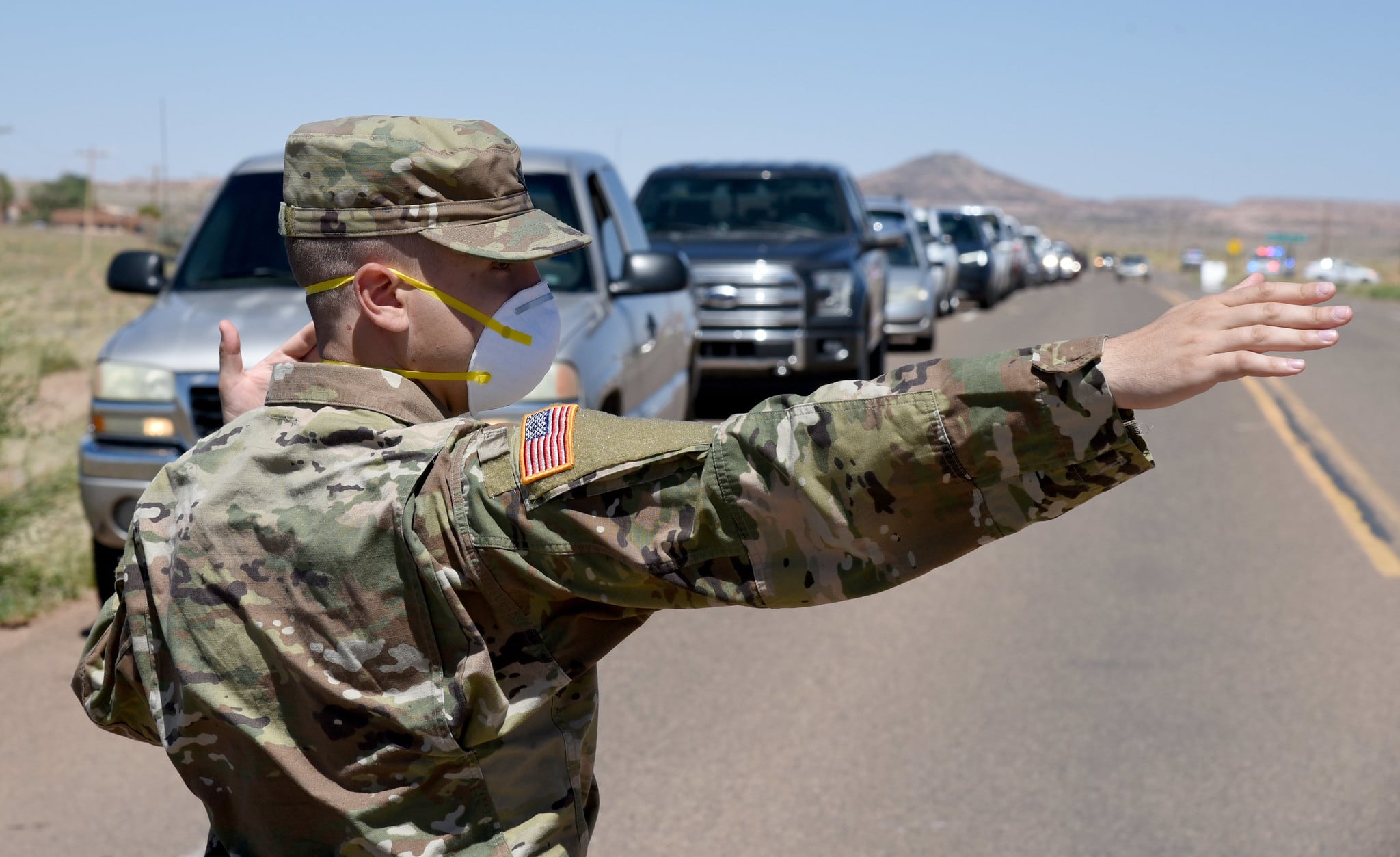White House officials agreed to cover all of the costs of National Guard coronavirus response missions for three additional states on Friday, signaling that the federal government may eventually do the same for more states in coming months.
Earlier this week, President Donald Trump extended Guard missions set to expire later in August for four more months, authorizing them through Dec. 31. Multiple governors had requested the move, saying that the Guard assistance will be needed to deal with coronavirus support efforts “until a vaccine is developed.”
Currently, about 30,000 guardsmen are deployed on a host of pandemic related deployments. White House officials have said the troops could be tapped in coming months to help with transportation and distribution of a vaccine, when developed.
RELATED

White House assistant press secretary Karoline Leavitt said new authorization will allow guardsmen to “continue their essential efforts on the ground, including assisting healthcare workers at nursing homes, facilitating the distribution of necessary supplies and community based testing, and supporting food security efforts.”
Trump’s extension, however, came with an announcement that the federal government would now cover only 75 percent of the cost of the Guard deployments, instead of the 100 percent coverage afforded to states since March.
Even though that 75 percent cost share is typical in many state emergency deployments, numerous state leaders said the move would leave them in significant financial distress, given the economic stress of the last few months.
Two states — Texas and Florida — were granted exemptions to the new rule, and granted full cost coverage. On Friday, the White House added Connecticut, California and Arizona to the list.
Officials indicated the decisions were based on new requests from state officials illustrating financial needs and complexities of the individual Guard missions. More states could make similar requests in the coming weeks.
RELATED

Guardsmen should not notice any difference in their work based on the funding issues. States can use other federal dollars or existing budget reserves to cover the remainder of the unpaid mission costs. The technicalities of the funding should not result in any reduction or cancellation of existing work.
Along with ensuring that living costs associated with the deployments are covered, the Title 32 authorizations for the guardsmen are important so those troops can qualify for certain medical, education and retirement benefits later.
More than 4.9 million Americans have contracted coronavirus in the last five months, and more than 160,000 have died from complications related to the illness.
Leo covers Congress, Veterans Affairs and the White House for Military Times. He has covered Washington, D.C. since 2004, focusing on military personnel and veterans policies. His work has earned numerous honors, including a 2009 Polk award, a 2010 National Headliner Award, the IAVA Leadership in Journalism award and the VFW News Media award.





